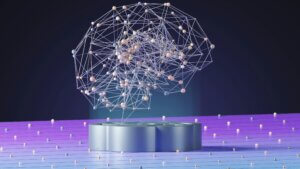The conference took place in a work atmosphere rich in discussions. The topics of the presentations concerned both general philosophical questions of interaction between humans and artificial intelligence, and applied topics of including AI in academic courses, to solve various problems. The participation of researchers from different fields – philosophy, sociology, law, communication, design, etc. ensured the interdisciplinary nature of the conference and made it possible to comprehensively discuss not only the advantages and problems of such interaction, but also its future prospects, primarily in the field of higher education.
Thus, a number of reports were devoted to issues of human-machine partnership in the digital environment, ethical and legal aspects of interaction between humans and AI, including in relation to academic ethics. A serious discussion has arisen around the problem of authorship and plagiarism when using AI to generate student texts.
 Other talks raised the question of the limits of AI capacity in storytelling. Of great interest was a report that presented the results of a study of the collective unconscious archetypes in AI-generated texts, as well as presentations on storytelling techniques in a digital educational environment and the possibilities of using structuralist narratology to analyze and generate texts with the help of AI in practical academic courses on storytelling.
Other talks raised the question of the limits of AI capacity in storytelling. Of great interest was a report that presented the results of a study of the collective unconscious archetypes in AI-generated texts, as well as presentations on storytelling techniques in a digital educational environment and the possibilities of using structuralist narratology to analyze and generate texts with the help of AI in practical academic courses on storytelling.
A number of presentations were devoted to applied issues of interaction with AI in the educational environment: the development of meta-subject communication skills of students, the transformation of teaching practices, the partnership between a teacher and AI when creating a training course, the prospects for using AI in practical courses on media production, the problem of AI creativity, etc.
Finally, human-AI interaction in the educational environment was examined through the lens of critical social theory. The reports presented outlines of a critical theory of AI, a critical analysis of the social impact of AI on education, and examined the automation of communication and education from a social critical perspective.
Despite the variety of issues and topics raised in the reports, the conference would risk becoming a teaching monologue regarding AI in the educational environment. In this sense, holding, within the framework of the conference, a round table “Artificial Intelligence in the Educational Process through the Eyes of Students” made it possible to ensure dialogue and a high degree of discussion, as well as to hear the opinion of the other side of the communicative process in education. In their presentations, students shared their own experience of interacting with AI in educational courses and offered their vision of integrating AI into the educational process.
Two days of intensive work at the conference made it possible to clarify important aspects of the interaction of teachers and students with AI, as well as to outline further prospects for this interaction and to propose the particular steps for its optimization at the European Humanities University in the form of a number of practical recommendations.